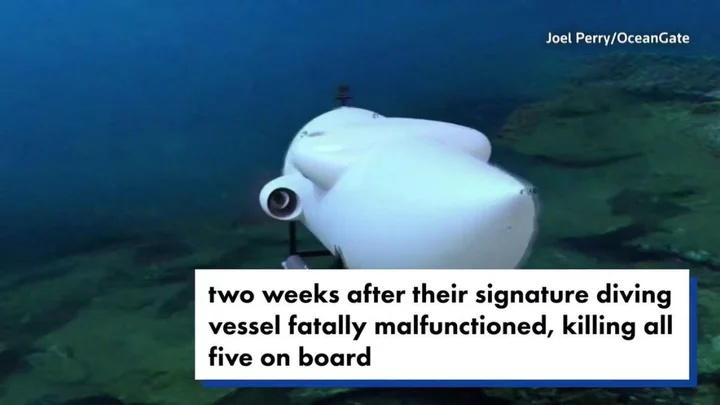You would think people would read the room, and learn from the tragic and fatal implosion of the Oceangate submersible in July, yet there’s already plans for another trip down to the Titanic wreckage next year – and the US government doesn’t want it to go ahead.
Two months after the Titan sub crushed underwater, killing five people, officials are trying to stop Georgia-based firm RMS Titanic Inc. (RMST) from trying to recover further historical items from the wreckage to add to its collection of artifacts it exhibits.
While RMST owns the salvage rights to the doomed liner which infamously struck an iceberg and sank in 1912, the US government is drawing attention to both federal law and an international agreement which classes the shipwreck as a hallowed gravesite.
According to the Associated Press, the government states in court documents filed on Friday that RMST is “not free to disregard” the “validly enacted federal law” mentioned above, but it nonetheless is “its stated intent”.
“[The shipwreck] will be deprived of the protections Congress granted it,” its lawyers argue.
RMST, meanwhile, says it looks to take images of the entire site, including areas where “deterioration has opened chasms sufficient to permit a remotely operated vehicle to penetrate the hull without interfering with the current structure”.
Provided the objects are not “affixed to the wreck itself”, artefacts recovered could include items from “inside the Marconi room” – that’s the room where the ship’s wireless radio was used to communicate with other vessels and those on the shore.
RMST also insists they do not plan to cut into or detach any part of the wreck “at this time”, but that they don’t plan to seek a permit from the National Oceanic and Atmospheric Administration (NOAA) – something the US government says it needs in order for the firm to move forward with its plans.
The NOAA oversees the public interest in the Titanic, and on its website accepts it “may be in the public’s interest to salvage some artifacts” from the wreckage.
“NOAA therefore balances this value with the Congressional intent to manage the wreck site as a maritime memorial consistent with the International Agreement, which proclaims that the Titanic shall be recognized as a memorial to those who perished.
“NOAA has concluded that the recovery of many of the artifacts from the debris field (with certain exceptions) is consistent with the NOAA Guidelines and the International Agreement, including the in situ preservation policy.
“However, NOAA has also determined that recovery of artifacts from within either of the two hull sections is not consistent with the purposes of a maritime memorial.”
It’s not the first time the US government and RMST have had a legal battle over the ship, as back in 2020 a similar case concerning a planned expedition made its way to the courts, before the coronavirus pandemic scuppered proposals and the issue didn’t go any further.
Sign up to our free Indy100 weekly newsletter
Have your say in our news democracy. Click the upvote icon at the top of the page to help raise this article through the indy100 rankings.









